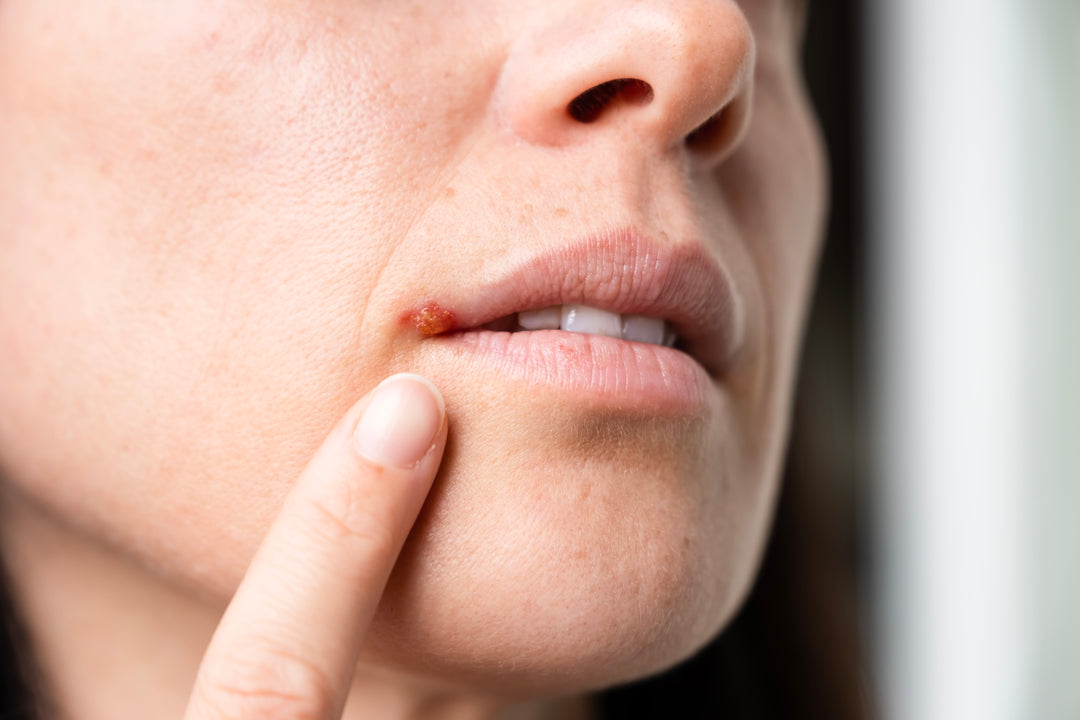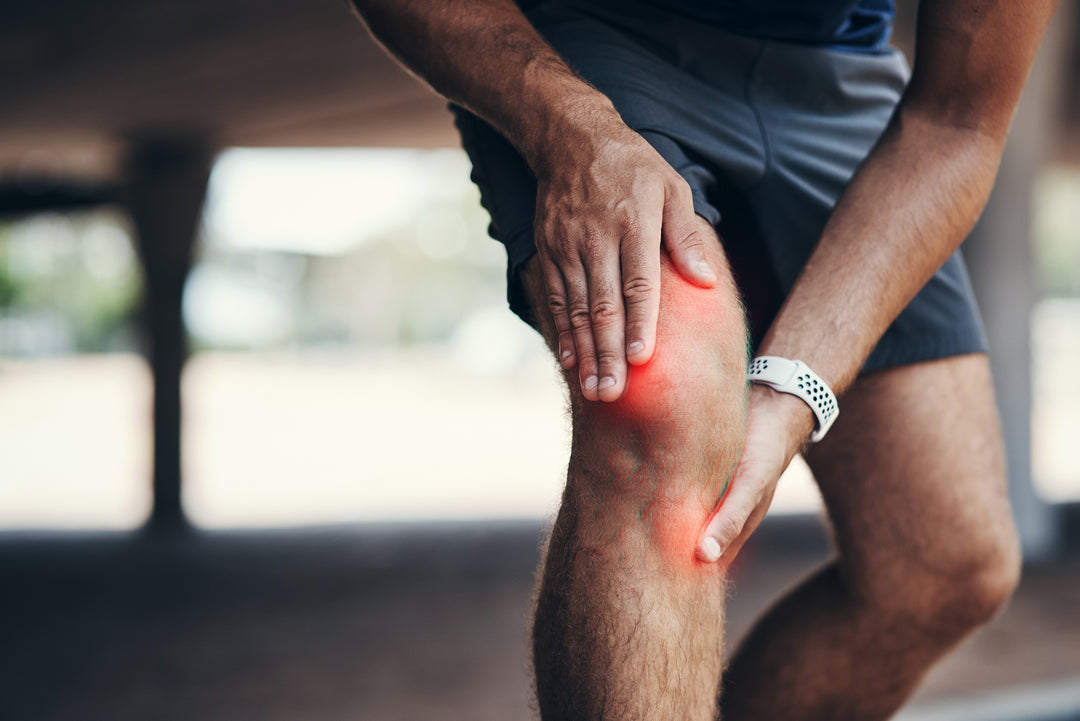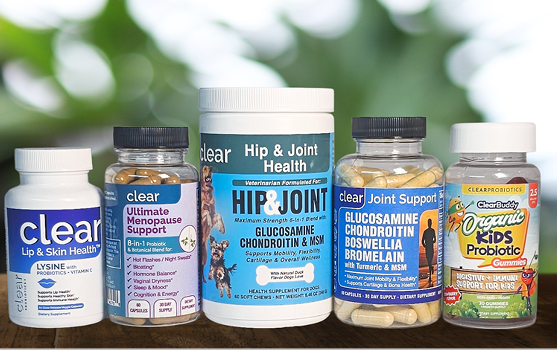How to Treat Anxiety With Supplements: The Best Options
There are a number of ways how to treat anxiety with supplements. Some of the most popular options include Omega-3 fatty acids, magnesium, probiotics, cannabidiol oil, and herbal concoctions. These supplements work by reducing inflammation, balancing neurotransmitters, and promoting relaxation.
If you're considering taking an anxiety supplement, it's important to speak with your doctor first. They can help you choose the right supplement for your needs and make sure there aren't any potential interactions with other medications you're taking.
Find out how to treat anxiety with supplements in the safest and most effective manner.
Table of Contents
Types of Anxiety Supplements
If you're looking for a way how to treat anxiety with supplements, here are a few of the most popular products currently on the market.
1. Probiotics
Probiotics help maintain healthy gut bacteria and balance cortisol and serotonin for improved sleep and optimum mental health. It also helps promotes clear thinking, increased brain function, and overall cognitive health.
2. CBD Oil
CBD oil is one of the most popular supplements for anxiety. Cannabidiol is a compound found in cannabis that has been shown to have anti-anxiety properties.
CBD oil is made by extracting cannabidiol from cannabis plants and then diluting it with a carrier oil like coconut oil. You can vape it, eat it, or rub it on your skin.
3. Ashwagandha
Ashwagandha is an herb that has been used for centuries in traditional Indian medicine.
The herb is thought to help treat anxiety and depression through its anti-inflammatory properties, as well as its influence on the GABA receptors, which play a key role in regulating feelings of anxiety and stress.
A small study has shown that taking ashwagandha can improve well-being, reduce stress, depression, and anxiety, and improve sleep quality.
Ashwagandha is typically taken in capsule form.
4. Omega-3
Omega-3 fatty acids are a type of unsaturated fat that is essential to our health. They can be found in fish oils such as cod liver oil.
In addition to supporting the development of our eyes, hearts, bones, and muscles, they have also been shown to improve mental well-being.
A 2011 study funded by the NCCIH showed that students who received 1,000 mg of fish oil per day for 10 days had reduced symptoms of stress compared to the placebo group.
5. Black Horehound
The bristly black horehound is a Mediterranean and Central Asian native but can be found in North America and Europe as well. Also known as "Stinky Roger" for its pungent smell, the black horehound has been used to treat various ailments since the 13th century.
In an open clinical study reported by the European Scientific Cooperative on Phytotherapy (ESCOP), 65% of GAD patients who took black horehound for 60 days had a positive rate of 65%. This confirms the anxiolytic effects of this herb observed in animal studies.
6. Passionflower
Passionflower is a vine that is native to the Amazon rainforest.
In a 2017 study, the anti-anxiety benefits of Passiflora incarnata in patients undergoing a dental procedure were found to be similar to those provided by Midazolam, a common sedative, but without the risk of memory impairment.
Passionflower is available in capsules or as a tea.

(Source)
7. Skullcap
The herb Scutellaria Laterifolia, also known as Skull Cap, has been used to treat anxiety and insomnia for more than 200 years in traditional medicine. It’s showing the most potential as a treatment for anxiety in clinical studies.
In 2010, researchers at the University of Westminster observed that the American skullcap showed great promise as a "safe, well-tolerated and effective alternative" to pharmaceutical anxiolytics.
Skullcap is available in capsules or as a tea.
8. Valerian
Valerian is a root that has been used for centuries in traditional medicine.
The roots of this perennial plant have been used for hundreds of years in tea or in liquid form to help relieve insomnia, stress, and anxiety. Its active ingredients have been shown to have a calming and sedating effect on the nervous system.
Valerian is available in capsules or as a tea.
9. Chamomile
Chamomile is a flower that has been used for centuries to brew calming tea.
During a 5-year study of chamomile therapy for moderate to severe generalized anxiety disorder (GAD) at the University of Pennsylvania, participants who took 500mg capsules of chamomile extract 3 times daily showed a significant reduction in GAD symptoms after 8 weeks of treatment.
Chamomile is available in capsules or as a tea.
10. Lavender
Lavender oil has long been a favorite of aromatherapy practitioners, as it’s been believed to have calming and healing properties. Research has backed up this traditional wisdom.
Research indicates that the smell of lavender has calming effects on people. This can be seen in its use in dental offices where patients are less anxious and in nursing homes where elderly residents feel less agitated.
Lavender is available in capsules or as a tea.
11. Saffron
Although this crimson-colored spice from Persia (Iran) is mainly used as a seasoning, researchers have begun exploring its mental health benefits.
A 2011 study found that the aroma of saffron reduced the levels of the stress hormone cortisol in female test subjects, possibly hinting at a possible treatment method for PMS.
In 2016, saffron supplements were found to have a positive effect on Beck Anxiety Inventory (BAI) scores among anxiety patients after 12 weeks of treatment.
How to Treat Anxiety with Supplements
Anxiety supplements work by providing the body with the nutrients it needs to function properly.
When the body is deficient in certain nutrients, it can lead to anxiety and other mental health problems. Anxiety supplements can help to correct these deficiencies and help the body cope with anxiety.
Some people experience anxiety on a daily basis, which can interfere with their ability to function properly. Anxiety can be caused by a variety of factors, including genetics, life experiences, and brain chemistry.
There are many different types of anxiety disorders, such as social anxiety disorder, generalized anxiety disorder, and panic disorder.
While there are many different medications that can be prescribed to help treat anxiety, there are also a number of natural anxiety supplements that can be taken to help reduce symptoms.
Some of the most popular anxiety supplements include:
- Omega-3 fatty acids
- Magnesium
- Probiotics
- L-theanine
- Passionflower
- Valerian root
The Risks and Side Effects Associated With Anxiety Supplements
How can a plant-based supplement be capable of causing side effects usually associated only with pharmaceutical drugs?
The NIH’s Office of Dietary Supplements says that supplements can have strong effects on the body, and in some, these can be particularly potent.
Take red yeast rice for example. Red yeast rice is a Chinese medicinal herb that has been used for centuries to treat a variety of ailments. In America, it is typically marketed for its ability to lower cholesterol levels.
Unfortunately, consumers have no way to know how much of the active compound is actually in the pill.
Vitamins can interact in harmful ways with other drugs. For example, vitamin K can interfere with the effect of anticoagulants. Vitamin E can amplify the power of some drugs and increase the risk of hemorrhage.
And St. John’s wort can weaken the potency of some heart and blood pressure medications, anti-depressants, and cholesterol-lowering statins.
Since older adults are more likely to be on medications, they need to be careful when taking any supplements.
Older people also have a much harder time getting drugs out of their systems, and this can lead to more problems because kidneys don’t work as well compared to younger people.
The FDA has found supplements that contain drugs not listed on their labels, increasing the risk for additional negative side effects and interactions. A 2016 study found that 776 different supplements contained pharmaceuticals that were not listed on the bottle.
Some dietary supplements can have interactions with medication or have other negative health effects. For instance, Omega-3 fatty acids can hamper blood clotting while kava can damage the liver.
So, before you take any supplements, it's essential to be aware of the potential health risks and side effects of doing so. This is especially true if you have a pre-existing medical condition.
Guidelines for Choosing the Right Supplement for You
How do you know which supplement is right for you?
Here are a few guidelines to help you choose the right product.
1. Make Sure the Supplement Is Backed By Science
There are a lot of supplements out there that aren't backed by any scientific evidence. So, you want to make sure that the supplement you're considering is backed by science.
2. Make Sure the Supplement Is Safe
You also want to make sure that the supplement you're considering is safe. There are a lot of supplements out there that can have harmful side effects.
3. Make Sure the Supplement Is Effective
You want to make sure that the supplement you're considering is effective. There are a lot of supplements out there that are overhyped but don't actually work.
4. Make Sure the Supplement Is Affordable
You also want to make sure that the supplement you're considering is affordable. There are a lot of supplements out there that are very expensive but may not be worth your money.
5. Make Sure the Supplement Is Easy to Take
You want to make sure that the supplement you're considering is easy to take. There are a lot of supplements out there that are very difficult to take like oil tinctures.
Following these guidelines will help you choose the right supplement for you.
FAQs in Relation to How to Treat Anxiety With Supplements
Which supplements are best for anxiety?
- Vitamin D
- Vitamin B complex
- Magnesium
- L-theanine
- Multivitamins
- Omega-3
- Valerian root
What can I take for anxiety that's all-natural?
- Kava
- Passionflower
- Valerian root
- Chamomile tea
- Lavender essential oil
- Lemon balm
What vitamin is lacking with anxiety?
Mental health problems such as memory loss, anxiety, depression, irritability, and insomnia are often linked to vitamin B1 deficiency. The human brain needs this nutrient to convert sugar into usable fuel.
Conclusion
How to treat anxiety with supplements? Omega-3 fatty acids, magnesium, probiotics, and CBD oil are all popular options that have been shown to be effective in reducing anxiety.
Speak with your doctor before taking any supplement to make sure it's the right choice for you and to avoid potential interactions with other medications.








